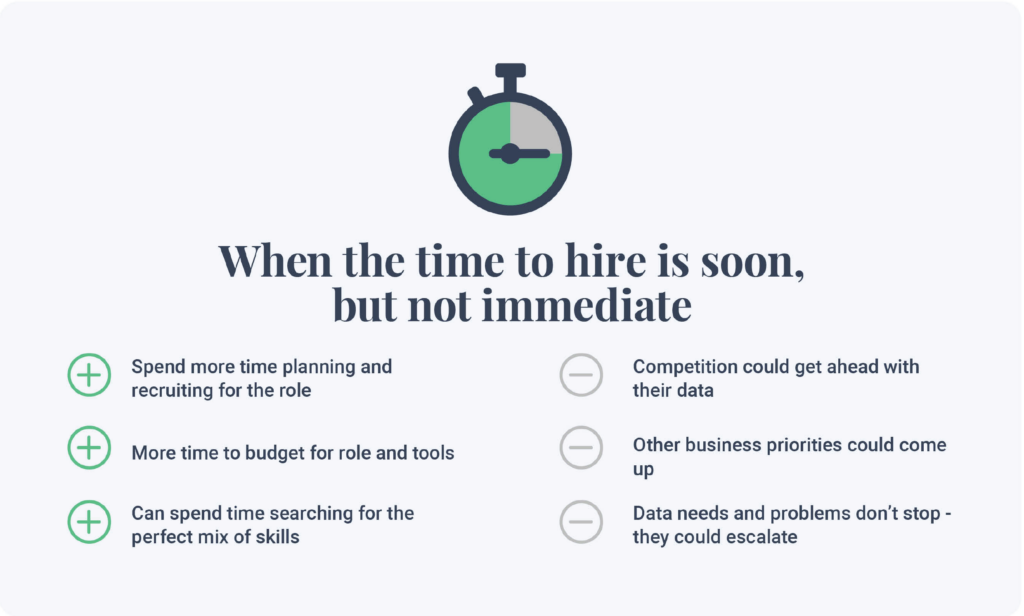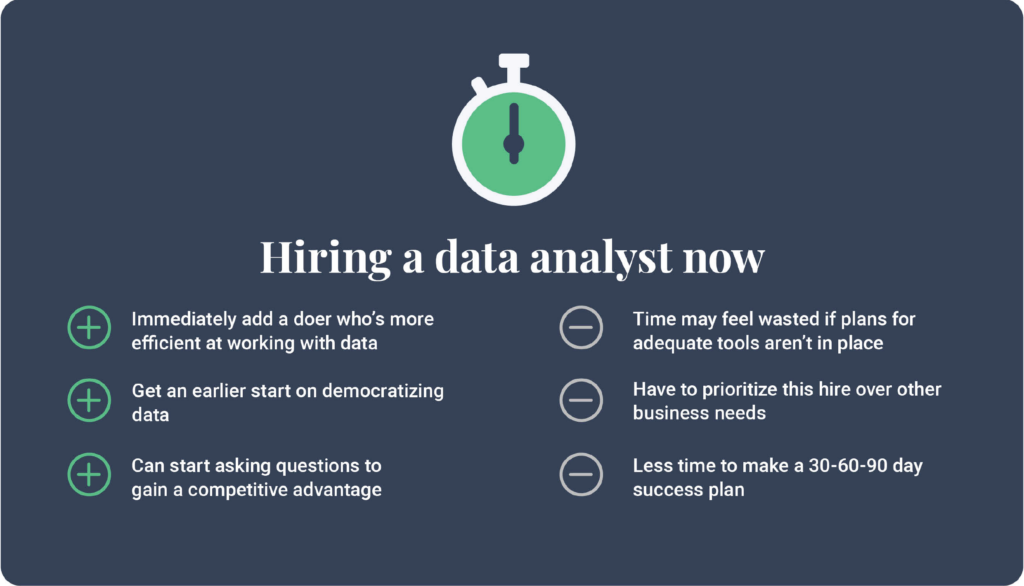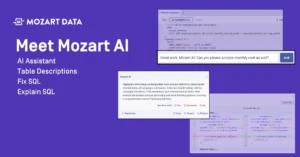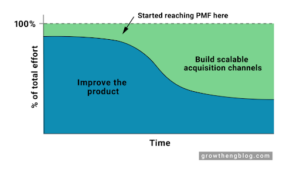The Business Case for Building a Data Team
If you’re considering hiring a data analyst, it’s an exciting time for your company. You’ve got people using or interested in your product or service, which means you’re generating data. And now you need to get more out of your data in order to grow your business or differentiate your offering.

When is the right time for your start-up to hire its first data analyst?
When the time to hire is soon, but not immediate
Every company has core business questions that need answering. Most basic answers can be found through data tools, like Google Analytics, or the reporting provided by a service being used, like Facebook Ads Manager.
But as your business grows, the questions become more complex and more expensive to answer. These benchmarks are indicators that the timing may be right for your first data analyst hire.
Your out-of-the-box data tools are no longer providing the needed value, or you’ll notice your outside data consultant budget creeping up.
You’ll also reach a point where you need to clean your data. That point can be triggered in some common ways:
-
The data isn’t understandable, due to duplicate values or columns, obscurely named columns, missing or suspicious data values, or unnecessary leading values.
-
Your data challenges are laborious to solve or preventing people from doing their jobs efficiently.
If you’ve already invested in collecting and extracting your data, you’re likely ready for a dedicated data analyst who can clean your data and ensure that it can be trusted. A data analyst will also understand the data, ask savvy questions, extract valuable insights, and find actionable answers.
Besides the factors above, also consider your company’s unique needs. This includes where you are with funding, whether you already have a data expert in your founders or first-hires that has the bandwidth to continue tackling data questions, and other brand and vertical-specific details.

When the time to hire is now
The “right time” to hire your first data analyst isn’t a bullseye that you should be aiming to hit squarely. But it changes when you have a specific question that you need to answer in order to drive your business.
Your business questions likely started out as simple counts. For example, how many people are visiting our website? How many companies are in our sales funnel? How many subscribers did we gain this week?
But those questions will start to become more complex and more complicated to answer. For a digital marketing example, questions like “Which ad channels will deliver us the best ROI and when?” are not simple. Cost per lead (CPL) is pretty easy to determine. But if marketing and sales teams want to know which lead sources have the highest conversion rates and how long it takes leads from different sources to convert, you need to examine data from multiple sources. And if this data isn’t clean, an issue like duplicates can immediately undermine insights — which may not even be recognized until actions are already taken.
If your business growth depends on answers to more complex questions, don’t put off or de-prioritize your first data analyst hire. Bottom line: if data is going to make a major difference for your business and it’s either blocking you or taking a lot of time to answer the questions that you have, then the right time to hire is now.

The business case for hiring now
If better utilizing your data would immediately make a difference for your business, then you can’t afford to continue to miss the insights that are living inside your growing ocean of data. See this as an opportunity rather than a project. Flip the script from “we have to” do something with our data to “we get to” leverage our data.
When data is a differentiator for your company, you should start answering your business questions in a savvy, novel way. To do that, you’ll need to hire an analyst who will leverage data in a way that will connect your company to competitive advantages in the market and give them the tools to succeed.
The analyst won’t only be looking for answers to you and your stakeholders’ questions. They’ll also look for questions and answers that aren’t on anyone’s radar yet. That’s how they’ll help you gain a competitive advantage.
Having someone in your start-up with the word “data” in their job title transforms data into a priority — data is no longer just a line item on someone’s to-do list, but the whole reason that person joined your business. Your first data analyst is the beginning of data as a department — a key step on your company’s path to analytics maturity.
Deciding to hire your first data analyst is only the beginning of the process. Learn more about how to find the right analyst fit for your team, and how to set them up for success, in The Start-up’s Playbook to Hiring Your First Data Analyst.


